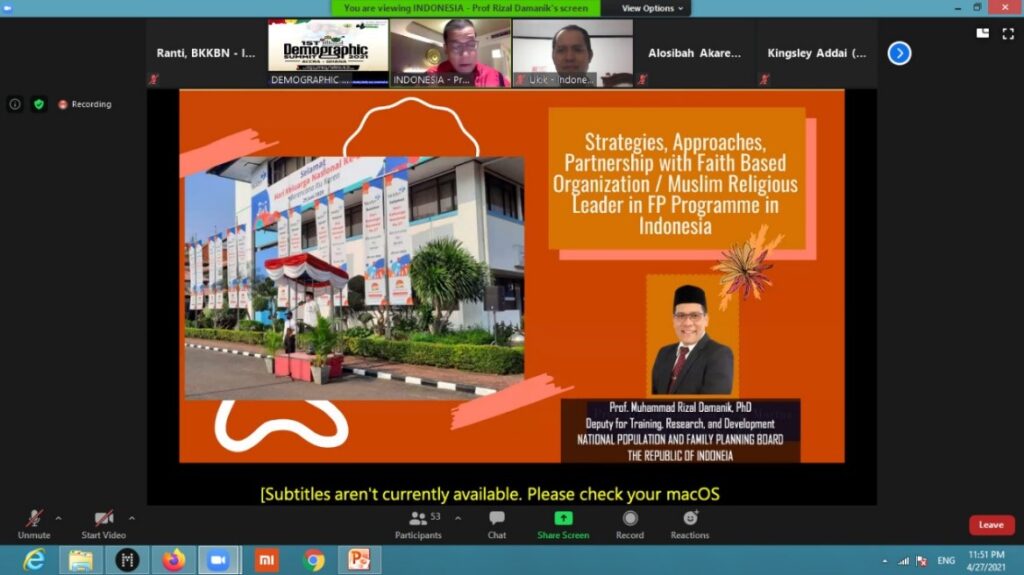
Jakarta – Indonesia through the National Population and Familly Planning Board (NPFPB/BKKBN) was represented by Deputy for Training, Research, and Development of the BKKBN, Prof. Rizal Damanik, PhD., one of the speakers in The First Demographic Summit in Ghana 2021 that organized by National Population Council of Ghana, The John Agyekum Kufuor Foundation, United Nations Fund for Population Agency, and Planned Parenthood Association of Ghana.
In his presentation, Prof. Rizal Damanik, PhD, said that three factors contribute to the success of family planning programs in Indonesia such as strong political commitment from all related parties, socialization, and education which is carried out gradually and continuously, and the involvement of religious leaders in various activities. This is one of the causes of the decline of Total Fertility Rate from 1967 until 2017 in Indonesia, whereas the decreasing number is from 5,6 to 2,4.

“The involvement and support from religious organizations and religious leaders have the significant role of the success of family planning program in Indonesia. Because of Indonesia is a country with the high number of population which consist of various race, religion, and culture. Many religious organizations have millions of adherents until grass root level, furthermore, they have complete services facilities such as educational institution and health center” added Prof. Rizal Damanik, Ph.D., in his presentation entitled Strategies, Approaches, Partnership with Faith-Based Organization / Muslim Religious Leader in Family Planning Programme in Indonesia.

The First Demographic Summit in Ghana 2021 Event was held on 6-7 May 2021, raised the theme “Ghana’s Challenge of the Demographic Bulge 2030 and Beyond is a forum was attended by all related stakeholders for sharing and discussion regarding population issue as a challenge that affects public health, economic level, and safety, especially in the current covid-19 pandemic era.
Besides Indonesia, two other countries that participated in sharing experiences were the State of Rwanda with the theme The Role of Political Leadership in Effective Population Management, and the State of Senegal that represented regarding The Role of Religious Leadership in Repositioning Family Planning and Population in National Development. This event started at 10.00 AM in Ghana Time or 07.00 PM in Jakarta Time.
The First Demographic Summit in Ghana 2021 forum was attended by various parties such as the government, partners, religious leaders, cultures leaders, parliamentary representatives, security agencies, educators, and journalists to discuss collaboration strategy between government and religious leaders in family planning program as part of demographic aspect. According to maternal and health survey (2017) Ghana approximately 49% of births of high-risk pregnancies group.
The covid-19 pandemic that occurred widely had a significant impact on the population problem. The need to increase access to service and education is needed to reduce the high-risk pregnancies problem. The strengthening of the partnership network with the religious leader in the family planning program is one of the strategies in overcoming demographic issues in Ghana and Sub-Sahara Countries. The population issue has an impact on the economy, society, health, education, employment, and culture. Well-planned population development can strengthen future generation development.